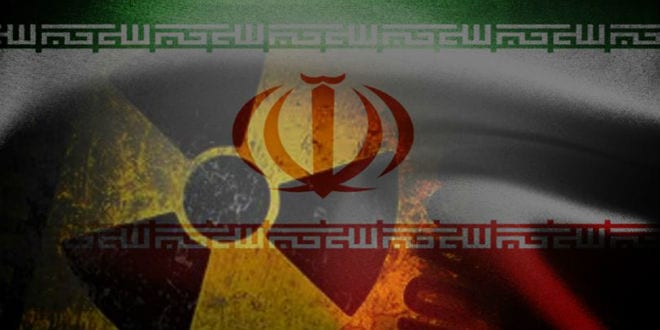
Israeli Prime Minister Benjamin Netanyahu will arrive in Tokyo later on Sunday as part of bilateral talks with his Japanese counterpart Shinzo Abe. It is expected that the prime ministers will discuss furthering economic cooperation between the two nations and the Iranian nuclear agreement.
According to AFP, Netanyahu is likely to press Japan to side with Israel concerning the nuclear threat posed by Iran in anticipation of the resumption of talks between Iran and the P5+1 later this week.

Beginning Tuesday, representatives of Iran, Germany, and the five permanent members of the UN Security Council will convene in Vienna to begin drafting text of a nuclear agreement between Iran and the western powers.
Supporters of the deal argue that the historic agreement would limit the feasibility of the Islamic Republic’s ability to use nuclear technology for potential nuclear weapons. Opponents of the deal, vocally led by Israel, contend that the agreement would allow Iran to reach the nuclear threshold. Should Iran have access to nuclear material, it could make a nuclear weapon undetected.
Since newly elected Iranian President Hassan Rouhani took office in August, many hopes have been pinned on the new president to resolve the nuclear crisis. On Sunday, Rouhani told a group of Iranian medical and nuclear experts that his country is offering full transparency to close nuclear talks.
“If the world seeks good relations with Iran, it should choose the way of surrendering to Iran’s rights, respecting the Iranian nation and praising Iranian scientists,” the president stated in a speech broadcast on live state television.
“Iran’s path to achieve nuclear technology has been a correct way and it will never stop,” Rouhani added. “We do not want to withdraw one step in technology.”
Iran has begun to somewhat comply with demands of the P5+1 to begin dismantling and scaling down its nuclear program. While Iran has refused to deactivate many of its heavy water reactors, it has allowed International Atomic Energy Agency (IAEA) inspectors into the country and nuclear sites. In return for cooperation, the UN and several western countries have lifted or eased certain sanctions.
Netanyahu has always been of the position that Iran’s nuclear program should be totally dismantled and that the Iranian Republic should be restricted access to all nuclear technology. Netanyahu firmly believes that Iran’s true intentions lie in obtaining a nuclear weapon, which various Iranian leaders have publicly stated would be used to destroy Israel.
Rouhani responded to western accusations that Iran seeks to create nuclear weapons, contending that his country would use nuclear technology for peaceful purposes, such as medical research and power generation.
“The Iranian nation has never been after weapons of mass destruction since it does not see it as legitimate,” he said.
The prime minister is likely to ask Abe not to lift sanctions and to back Israel’s demands. Japan is known to be extremely dependent on Middle Eastern oil and has always maintained a friendly relationship with Iran. Japan is among Iran’s biggest oil export markets.




